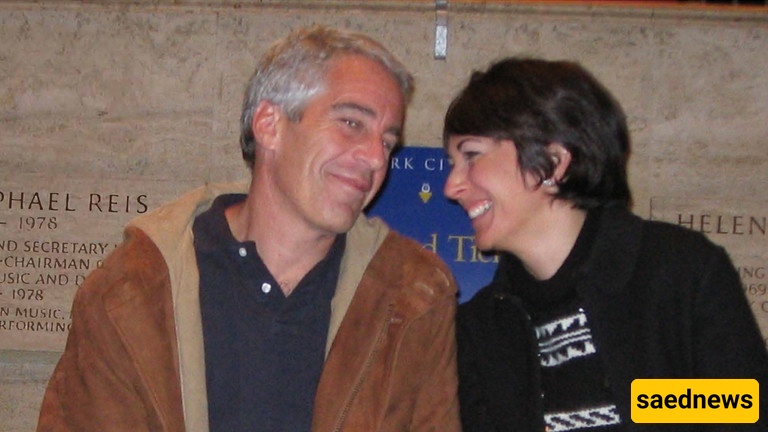SAEDNEWS: The transfer of Ghislaine Maxwell, Jeffrey Epstein’s accomplice, to a minimum-security camp has sparked a wave of anger and doubt among victims, human rights activists, and the public. Has justice truly been served for sex trafficking victims in the United States?

According to SaedNews, citing Russia Today, Ghislaine Maxwell, once a symbol of complicity in the darkest sex trafficking case of the century, is now serving her sentence not in a high-security prison, but in a low-risk camp with open spaces and recreational facilities. Her transfer to this minimum-security facility, while many years remain on her 20-year sentence, has sparked waves of anger, confusion, and doubt among victims and the public.
The British-born woman, convicted in 2022 for aiding Jeffrey Epstein in trafficking underage girls for sexual abuse, has now been moved to one of the easiest federal prisons in Florida. According to some reports, inmates there can exercise outdoors, attend art classes, and even use tennis courts.
Critics question how it is possible for a woman directly involved in the sexual abuse of dozens of teenage girls to serve her sentence under such conditions. Is justice only reserved for those without money and influence?
Maxwell’s trial was the only window through which Epstein’s victims could taste justice, after Epstein himself died under suspicious circumstances in his jail cell in 2019. Many consider this case not just about two individuals, but a symbol of a hidden network of relationships among influential figures in politics, economics, and even royalty.
However, Maxwell’s quiet transfer to a low-risk prison has raised a fundamental question: Has her silence in exposing the network led to an unofficial leniency in her incarceration conditions? Some legal analysts and media outlets believe this move might be a form of an “unwritten reward” for her silence or limited cooperation.
Meanwhile, her victims remain disillusioned. One told the media:
“When someone like Maxwell serves her sentence in such an environment, we have to ask: Is anyone truly held accountable for all the suffering and abuse?”
Federal prison officials in the U.S. have stated that inmate transfers are based on criteria such as behavior, risk level, and absence of violent history. Yet, this explanation is not convincing to many—especially when considering that numerous non-violent offenders, such as women convicted of financial or drug-related crimes, continue to serve time in high-security prisons.
From the public’s perspective, this incident once again highlights the deep divide between “justice for all” and “justice for some.” Maxwell’s case is just one example of how wealth, political connections, and hidden networks can shape the administration of justice.
Now, once again, victims and social observers watch closely to see whether the U.S. judicial system will emerge successfully from this test or not.

